Gardeners Barking: Nurturing Green Spaces in Your Community
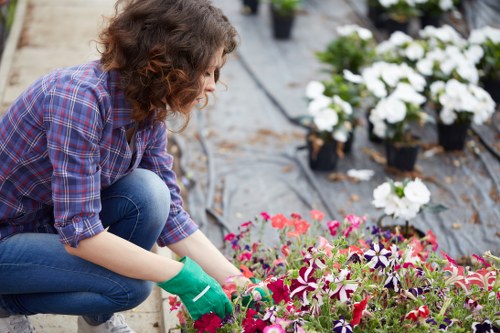
Welcome to the vibrant community of Barking, where gardeners play a pivotal role in maintaining and enhancing the beauty of our local green spaces. Whether you're an experienced horticulturist or a budding enthusiast, understanding the gardening culture in Barking can help you thrive in your gardening endeavors.
In Barking, gardening is more than just a hobby; it's a way of life that brings people together, fosters community spirit, and contributes to the overall well-being of the area. From community gardens to private backyards, gardeners in Barking are dedicated to creating and sustaining lush, healthy environments.
This article delves into the various aspects of gardening in Barking, offering insights, tips, and resources to help you make the most of your gardening experience.
Why Gardening Matters in Barking
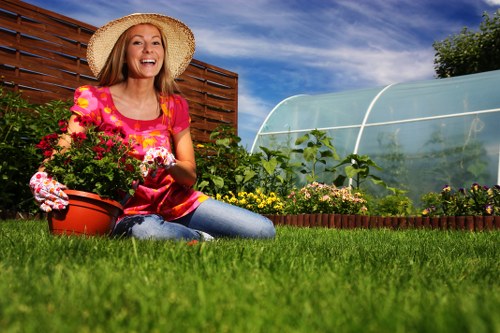
Gardening in Barking holds significant importance for several reasons. It not only beautifies the neighborhood but also provides numerous environmental and psychological benefits.
Firstly, gardens contribute to the local ecosystem by supporting biodiversity. They offer habitats for various species of insects, birds, and other wildlife, promoting a balanced and thriving ecosystem in the urban setting of Barking.
Secondly, gardening acts as a therapeutic activity. Tending to plants can reduce stress, improve mental health, and provide a sense of accomplishment. For many residents, gardening is a refuge from the hustle and bustle of daily life.
Environmental Benefits
Gardens help in reducing the urban heat island effect, improving air quality by absorbing pollutants, and managing stormwater runoff. They also contribute to carbon sequestration, mitigating the impacts of climate change.
Moreover, community gardens in Barking promote sustainable living practices. They encourage the use of organic farming methods, composting, and water conservation techniques, fostering an environmentally conscious community.
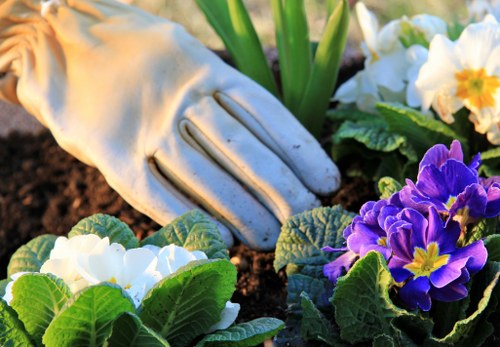
Social Benefits
Gardening fosters social interactions and community bonding. Community gardens serve as gathering places where residents can share knowledge, exchange gardening tips, and collaborate on projects.
These interactions strengthen community ties and create a supportive network among gardeners. They also provide opportunities for intergenerational learning, where experienced gardeners can mentor younger enthusiasts.
Additionally, shared gardening spaces can increase neighborhood security and pride, as residents take collective responsibility for maintaining and beautifying their surroundings.
Essential Gardening Tips for Barking Residents
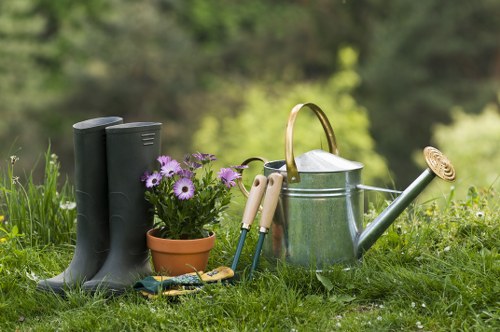
- Understand Your Soil: Test your soil to determine its pH level and nutrient content. Barking's soil can vary, so knowing your soil type helps in selecting the right plants and amendments.
- Choose Native Plants: Opt for plants native to the Barking area. They are better adapted to the local climate and soil conditions, requiring less maintenance and conserving water.
- Water Wisely: Implement efficient watering systems like drip irrigation. Water your plants during the early morning or late evening to reduce evaporation.
- Compost Regularly: Composting kitchen scraps and garden waste enriches the soil with organic matter, improving its fertility and structure.
- Plan Your Garden Layout: Consider the sunlight exposure, wind patterns, and space availability when designing your garden layout. Proper planning ensures optimal plant growth and health.
By following these tips, gardeners in Barking can cultivate thriving gardens that enhance both their personal spaces and the community at large.
Pest Management
Managing pests organically is crucial for maintaining a healthy garden ecosystem. Encourage beneficial insects like ladybugs and praying mantises that prey on common garden pests.
Avoid using chemical pesticides, which can harm beneficial organisms and contaminate the soil. Instead, use natural remedies such as neem oil or insecticidal soaps to control pest populations.
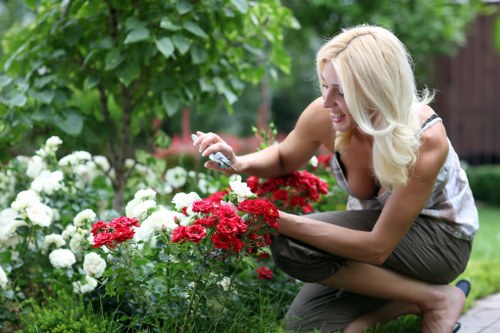
Seasonal Gardening
Understanding the seasonal cycles is essential for successful gardening in Barking. Each season presents unique challenges and opportunities.
Spring: Focus on planting new seeds and preparing beds by removing debris and adding compost.
Summer: Maintain consistent watering and protect plants from excessive heat with shading or mulching.
Autumn: Harvest remaining produce, plant cover crops, and prepare the garden for winter by pruning and mulching.
Winter: Plan for the next gardening season by researching new plant varieties and repairing tools and equipment.
Exploring Gardens in Barking
Barking is home to numerous beautiful gardens and green spaces that reflect the community's dedication to gardening. Visiting these gardens can inspire your own gardening projects and provide a sense of connection with fellow gardeners.
Some notable gardens in Barking include:
- Barking Riverside Gardens: A sprawling garden offering a variety of plant species and open spaces for community events.
- Eastbrook Nature Reserve: A natural habitat preserving local flora and providing educational opportunities about native plants.
- Mayesbrook Park: Features well-maintained gardens, walking paths, and recreational areas for families and gardening enthusiasts.
Local Resources for Gardeners in Barking
Access to local resources can significantly enhance your gardening experience. Barking offers various facilities and organizations to support gardeners:
- Barking Community Garden: Offers plots for residents to cultivate their gardens, providing tools and guidance for new gardeners.
- Barking Horticultural Society: Hosts workshops, seminars, and events focused on different aspects of gardening and horticulture.
- Local Nurseries: Provide a wide range of plants, seeds, and gardening supplies tailored to the Barking climate and soil conditions.
- Public Libraries: Offer gardening books, magazines, and access to online resources for continuous learning.
Nearby Areas Supporting Gardeners
Extending your gardening horizons beyond Barking, these nearby areas offer additional resources and beautiful gardens:
- Rainham: Just a short drive from Barking, Rainham boasts community gardens and annual gardening festivals.
- Custom House: Known for its urban gardening projects and sustainable farming initiatives.
- Abbey Wood: Features several botanical gardens and hosts regular plant exchange events.
- Dagenham: Offers extensive green spaces and horticultural societies catering to all skill levels.
- East Ham: Home to diverse plant species and multicultural gardening communities.
- Ilford: Provides numerous nurseries and gardening centers with expert advice.
- Walthamstow: Famous for its picturesque gardens and educational botanical tours.
- Chadwell Heath: Offers specialized gardening workshops and eco-friendly gardening solutions.
- Upney: Known for community-led gardening projects and urban greening efforts.
- Goodmayes: Features parks and gardens that are perfect for inspiration and relaxation.
- Valentines Park: A local favorite with beautifully maintained gardens and seasonal plant displays.
- East Tilbury: Offers coastal gardening tips and plant varieties suited for windy conditions.
- Snaresbrook: Home to ornamental gardens and historical plant collections.
- Elm Park: Provides green spaces for leisure gardening and family-friendly plant activities.
Conclusion
Gardening in Barking is a rewarding pursuit that enhances both personal well-being and the community's aesthetic appeal. By understanding the local environment, utilizing available resources, and participating in community initiatives, gardeners can cultivate thriving green spaces that benefit everyone.
Frequently Asked Questions
- What are the best plants for gardening in Barking?
Local native plants such as lavender, rosemary, and foxgloves thrive in Barking's climate. Additionally, vegetables like tomatoes, lettuces, and peppers are popular choices for home gardens.
- How can I start a community garden in Barking?
Begin by connecting with local gardening groups or the Barking Community Garden organization. You'll need to secure a suitable location, gather volunteers, and obtain any necessary permits from the local council.
- What resources are available for beginner gardeners in Barking?
Resources include workshops hosted by the Barking Horticultural Society, books available at the local library, and support from experienced gardeners in community gardens. Local nurseries also offer advice on plant selection and care.
- Are there any gardening events in Barking?
Yes, Barking hosts several gardening events throughout the year, including annual festivals, plant swaps, and educational seminars. Check the Barking Community Garden website or local event listings for upcoming activities.
- How can I manage pests organically in my Barking garden?
Introduce beneficial insects like ladybugs and use natural pesticides such as neem oil. Implementing companion planting and maintaining healthy soil can also reduce pest issues organically.


